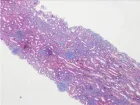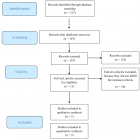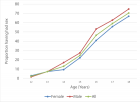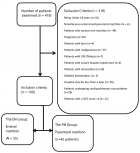Instructions for Authors
Insights in Veterinary Science assures to make publication of your research work an effective and simple process. In order to guide the authors for hassle-free manuscript submission process, we have divided the process in three steps:
- 1st Step > Preparing manuscript according to the instructions
The authors are suggested to abide following instructions while preparing the manuscripts' for submission-
-
- Text formats
- The authors are suggested to submit manuscripts in any underlying formats
- Microsoft Word (doc or docx)
- Rich Text Format (RTF)
- Portable Document Format (PDF)
- Open Document Format (ODF)
- Make sure you use uniform lettering and sizing of your original artwork.
- Your entire submission (including references) should be 1.5 spaced in font type- Times New Roman or Calibri with font size- 11 point. The margin of the document should be one inch. The pages of the manuscript must be numbered.
- The authors are suggested to submit manuscripts in any underlying formats
- Language
- Prepare manuscripts in Standard English.
- We suggest you to consider using an English language editing service prior to submission.
- Your writing should be comprehensible to editors and reviewers and your writing style should ideally be concise and accessible.
- Title Page
- Front page should contain title, forenames and surnames of all authors and each author's affiliations with a clear indication of who is associated with which institution.
- Supply a short title of no more than 50-80 characters.
- Authors are suggested to avoid specialist abbreviations
- Authors are suggested to make the title a clear and concise summary of their specific findings.
- Summary
- Provide a brief summary of not more than 250 words and do not include references in it.
- The summary should succinctly and clearly introduce the topic of the paper.
- Summary should highlight the most important results and explain any conceptual advances arising from them.
- Introduction
- Ensure that Introduction should not contain subheadings.
- Introduction should succinctly provide the background information that is required to set the results into their proper biological context.
- Results
- This section should describe the results of the experiments performed
- This section can be broken up by subheadings.
- Ensure that the distinction between new results and published findings/established facts is clear.
- Discussion
This section should explain the significance of the results and should place them into a broader context.
Please note- In case of research reports, the Results and Discussion sections should be combined into a single section. - Acknowledgements
- Acknowledgements should be grouped into a single paragraph placed after the Discussion section.
- Authors are advised to acknowledge only people who have made substantial contributions to the study, and provide the affiliation of those you name.
- Provide the names and affiliation details of members of collaborating bodies.
- Financial support for the study should be acknowledged in a separate support statement.
- References citing instructions
Each reference cited in the text must be listed in the References section.
Authors are advised to list the citations in References section in National Library of Medicine (NLM) format according to the following specimen style:
Journal Reference format
Author details (surname and initial(s)): Article title. Abbreviated form of the Journal name (if known) year, volume no:, page numbers, details of publisher(if any)
For example
Matlin, K. S. and Caplan, M. J.: Epithelial cell structure and polarity in the Kidney, IJOR, 1992, vol: 1 pp. 447-473. New York: Raven Press Ltd.
Book Reference format
Author details (surname and initial(s)): Chapter Title, Details of Edition (if any), Title of the Book, Year, page no's
For example
Milkman, R: 'The aquaculture in Australia', P Thompson & C Warhurst, Macmillan Press, London, The Handbook of Aquaculture, 1998, pp. 22-34. Authors are advised to use bold for authors' names used in references. Initials should follow all surnames in the list of authors; insert a full stop and space after each initial and place parentheses round the date followed by a full stop. If there are more than three authors, you may use 'et al.' after the third author. - Tables
- Insert tables into the main text document using the Table function in your word processing package.
- Please do not supply tables in a separate file.
- Number the tables consecutively.
- Limit data to a sensible number of significant figures.
- Avoid large tables if possible.
- Provide a clear footnote for each table, making sure all abbreviations and symbols used are defined.
- Include tables as part of the manuscript file.
- Figures
- Supply line-art figures and photographic images in JPEG, TIFF, Adobe Illustrator or PDF format.
- Graphs or bar charts may be supplied in Excel or similar spreadsheet format.
- Don't embed images in the main manuscript file. Supply them separately.
- All submitted figures must be clearly named and numbered.
- Whether for images, drawings or graphs, avoid using more than four panels for a single figure. These should be labelled as a), b), c) and d).
- Label your images such that all important details are clearly marked, but avoid obscuring large areas of the images with excessive abelling.
- Ensure that bar charts and graphs have a white background, with no shading or gridlines.
- Provide a clear caption for each figure.
- Captions should be brief and should not be repetitive of information given in the text.
- All abbreviations should be expanded.
- Text formats
- 2nd Step > Checking the compliance of the manuscript with our policies and instructions
The second step in manuscript submission helps an author to make certain that his/her manuscript adhere the policies of Insights in Veterinary Science Publication.
Please visit 'Principles and policies' section to know about ethical instructions for authors.
First and foremost, Insights in Veterinary Science wants to apprise authors why they should submit their manuscripts to us:- Insights in Veterinary Science Publication doesn't count the number of words of your manuscript. We admire your research and writing ability by putting no barrier of number of words or file size.
- Insights in Veterinary Science provides rapid, fair and productive peer review process
- Insights in Veterinary Science manuscripts are indexed in different premium services
- Insights in Veterinary Science ensures widespread promotion and visibility of the manuscripts
- Insights in Veterinary Science assures legacy and standard of the language through manuscript revision services
In a nutshell, authors are advised just to give structure to their research work, everything else will be taken care of by Insights in Veterinary Science Publication up to the publication of your research.
In view of the fact that Insights in Veterinary Science publishes the manuscripts to make outstanding contributions to scholarly knowledge in various disciplines of knowledge, the authors are suggested to apprehend following aspects and instructions related to manuscript submission.
Manuscript submission instructions for authors
-
- Authors should ensure that manuscripts are submitted in Standard English only.
- Authors have to confirm that the manuscript has not been previously submitted to Insights in Veterinary Science Publication for review.
- Authors agree that the manuscript is not under review for publication elsewhere and will not be submitted to another publication entity during the review period at Insights in Veterinary Science Publication.
- A manuscript may be rejected during review when there is a fundamental flaw and falsification in the data that cannot be fixed. The Insights in Veterinary Science Publication editorial office uses the plagiarism detection system for every submitted manuscript and never gives any consideration to fabricated manuscripts.
- If any author will be publishing a paper for which he/she deny Open Access re-use permissions, please state this clearly by supplying a credit line alongside the material.
- The manuscript should include a literature review citing works that are directly relevant to the immediate research topics and any gaps in the literature that may have led to the current study and analysis.
- The use of figures to demonstrate an argument or illustrate a finding is strongly encouraged. Authors should ensure that the graphical content of any figures is legible and of high quality. For purposes of review, authors are encouraged to insert figures and tables into the body of the text, thereby enabling reviewers to refer to the material easily while reading the manuscript.
- A submission to the Insights in Veterinary Science Publication has no word or size barriers. We know the value of your research and therefore do not want to stalemate your research work in limiting word counts or size. However, authors should realize that more the content more is the time taken in review process which ultimately delays the publication process. Therefore to safeguard the interests of all the authors, we charge a nominal extra amount for the manuscripts' exceeding five pages. Please visit "Manuscript Processing Charges" section for more details.
- If a manuscript has multiple authors, then one author must be designated as the corresponding author. That person will act for the full team of authors as the sole contact for communications with the Insights in Veterinary Science Publication editorial office throughout the review process. Corresponding author will be responsible for submission, peer review process, signing the agreement and payment of the publication charges.
- The Abstract should not exceed 500 words and must be structured into separate sections: Background, the context and purpose of the study; Results, the main findings; Conclusions, brief summary and potential implications. Please minimize the use of abbreviations and do not cite references in the abstract.
- Articles should have the order of the fields like Title, Name of authors, affiliations corresponding author and co-authors, abstract, keywords, introduction, background, list of abbreviations, materials and methods, results, conclusion, acknowledgement and references, figures, Tables and captions, videos and any work-in-progress.
- Insights in Veterinary Science Publication has provisions for the waiver of up to 15-20% of publication processing charges for the authors who have genuine reasons and for the authors who belong to underdeveloped countries. For more details, please visit "Manuscript Processing Charges section".
- A decision on the waiver will normally be made during the manuscript processing.
- To facilitate rapid publication and to save paper works, Insights in Veterinary Science accepts only online submission.
- 3rd Step > Choosing the right Journal for submission
This is the last step in manuscript submission process. Insights in Veterinary Science Publication understands that it becomes really puzzling situation for the authors to identify the right journal for their manuscripts from the plethora of journals. This becomes even more apparent for the authors who are submitting manuscript for the first time. The submission of manuscript in an irrelevant journal even carries the risk of rejection.
Therefore, in order to manoeuvre your precious research and make the submission an easy process in the right journal, Insights in Veterinary Science Publication suggests the authors to adhere the following aspects:
- 'Find My Journal' Tool
Insights in Veterinary Science Publication brings forth a tool which makes 'finding the right journal' process an effortless treat. The authors can find this tool on the top right side of home page. When an author clicks on this tool, a search screen appears which askes the author to enter the title of the manuscript and some prominent keywords of the abstract. After clicking the submit button, the tool will generate a list of Insights in Veterinary Science Publication journals that are nearly matching to the abstract. The authors can filter the results and identify the best journal that suits their manuscripts. - Manuscript Transfer
In case the authors have different choices of journals published by Insights in Veterinary Science Publication, They are suggested to submit their manuscript to their first choice journal under consideration. In peer review process, if the manuscript is considered unsuitable for that journal, the authors can request the editorial board about transferring the manuscript to another journal published by Insights in Veterinary Science. This manuscript transfer process facilitates that the authors are not required to upload their files and details more than once. The manuscript gets transferred from one journal to other without any hassles. Please visit 'Principle and Policies Section' for more details.
- 'Find My Journal' Tool

HSPI: We're glad you're here. Please click "create a new Query" if you are a new visitor to our website and need further information from us.
If you are already a member of our network and need to keep track of any developments regarding a question you have already submitted, click "take me to my Query."























































































































































